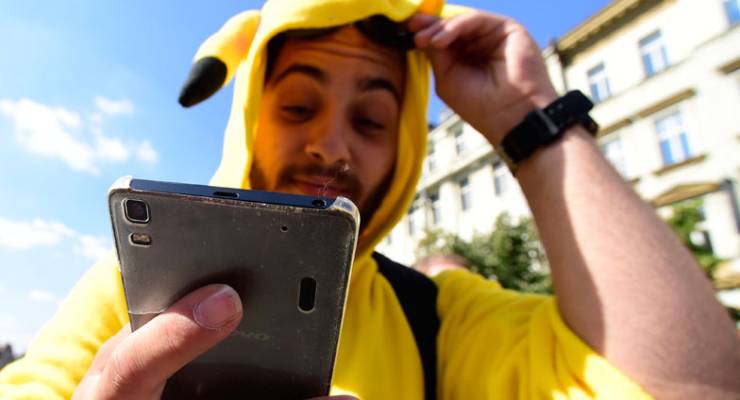
When something gets popular quickly, you can guarantee there’s going to be some moral outrage and probably a news story “no parent can afford to miss”.
The current fad is Pokemon Go. The app’s smashing success just a week after launch has sparked thousands of hot takes. Many are already warning that by encouraging users to explore the areas around them and hunt for Pokemon, the game is likely to lead to danger for kids. Or “Fears new Pokemon Go app craze could be used by paedophiles to lure unsuspecting young players” is how the Daily Mail reported it:
“One element of the game sees users putting a ‘lure’ on a certain area, which causes Pokemon to appear in that position, attracting gamers to the area.
“Fearful of where this could lead, one woman carried out an ‘experiment’, which saw her post a ‘lure’ to see how many people turned up. Within moments, several children had arrived at the chosen – most without parents – having ignored their usual ‘stranger danger’ radar in pursuit of the monster.
“‘It occurs to me that someone could use this for nefarious purposes’, the user known as Robin wrote. “
But Pokemon Go is just the latest in a long history of new fads we all need to worry about …
Kodak craze
In the 19th century, when photography first started to get even close to being affordable ($25 was a lot of money back then), people would take their “Kodaks” everywhere to capture life. But worry spread over taking photos of women on the beach, according to PBS, and on beaches and places like the Washington Monument cameras were banned.
Rock/popular music
That nasty “new” music has often been a bugbear of those worried about how it is impacting the youth. Before Eminem and Marilyn Manson there was Madonna and Prince. The most infamous incident, and one that still has a lasting impact today, was the late-’80s battle to get “parental advisory” stickers on records. Tipper Gore, wife of future vice president Al, was unimpressed with some sexualised Prince lyrics and banded together with other Helen Lovejoys to implement the music warnings. The best part of this whole saga was seeing Frank Zappa, Dee Snider from Twisted Sister and John Denver hauled before a Senate committee hearing to explain their lyrics. The Snider speech in particular is worth watching in full. Newsweek recently did a retrospective on the hearings.
Harry Potter
JK Rowling’s Harry Potter series is not the first nor the last book some groups want banned from libraries. But the religious right in the United States seemed to have particular issue with the witchcraft and wizardry in the book. The American Library Association reported the series combined was the most challenged of all books between 2000 and 2009.
One of Australia’s religious fringe groups, the Salt Shakers, also has a page dedicated to warning Christians about the dangers it poses in exposing children to the occult.
There have been at least six book burnings in the US involving Harry Potter books. Perhaps reflecting the shift in priorities of conservatives, the most complained-about books in 2015 tended to be on the grounds of containing content related to sexuality, homosexuality or transgender issues.
Minecraft
Video games cop it almost as much as music these days, blamed for violence and being just too addictive. Minecraft, arguably one of the most creative games for children to play, was cited for its crack-like quality by the BBC, with one doctor quoted as treating children with Minecraft addictions who view the real world as “slower, paler, less stimulating”.
Chat Roulette
Remember that five minutes when everyone was having random chats with people on ChatRoulette? Yeah, that one was (well, somewhat justifiably) a concern for parents.
The cinnamon challenge
In the heady days of 2012, parents were worried about kids filming themselves trying to eat a spoon full of cinnamon.
Twerking
Twerking used to be a thing parents should be worried about, apparently:
“The MamaBear Family Safety App can be used to know if the word ‘twerking’ is being used on your child’s social profiles. Parents can use the app to add ‘twerking’ to restricted words on facebook and instagram and know when a new photo has been uploaded to their social media profiles.”
The dance craze, which was popularised in part by Miley Cyrus, probably stopped being a thing parents should worry about when Clive Palmer did it.








Is that the article? one paragraph? Well that was a waste of time.
sign in?
You’re about a week late in covering this.
I followed the link to Dee Snider. Inspirational. Never underestimate the ability of musicians to articulate their cause nor the validity of it